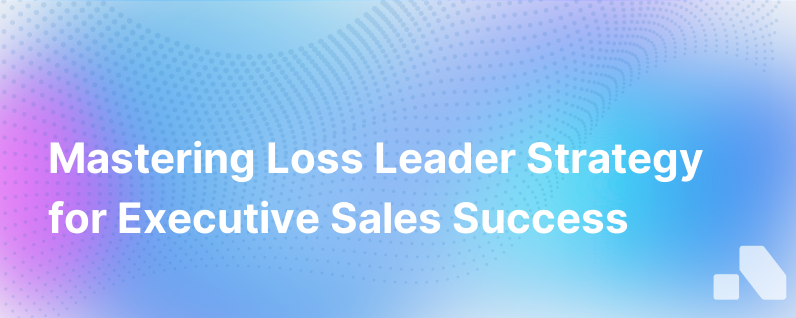
One of the business world's many strategies to lure customers into their product or service array is offering a loss leader. It's a counter-intuitive yet effective method that goes contrary to what any economics 101 class teaches about generating profit.
Despite how it appears at first glance, a loss leader strategy, when implemented diligently and strategically, can be a potent tool for growth. This article aims to provide an in-depth look at what a loss leader is, how it works, and why businesses employ it, along with a few cautionary tips.
What is a Loss Leader?
A loss leader is a product or service sold at a price point that is not profitable but is used to attract new customers or sell additional products and services to those customers. The basic idea is to price a product so attractively that customers are drawn in, and once they're in, they'll purchase other, higher-margin items.
It's a bold, somewhat risky approach, but when executed correctly, it serves as an excellent vehicle to attract an inflow of customers, generate buzz, and move inventory.
Why Businesses Use Loss Leaders
Using loss leaders is a marketing strategy: a short term investment for long term gain. The ultimate goal isn't to sell the loss leader per se; it's to attract customers, get them in the door, or on the website.
The loss leader plays a critical role in the sales funnel. The concept is to attract customers with an irresistible offer, and once they are engaged, upsell or cross-sell more profitable products and services. Supermarkets are a prime example, selling certain goods at reduced prices to encourage people to spend more on higher-priced products during their shopping trip.
E-commerce companies also employ loss leaders, offering products at a bargain price alongside complementary premium products. This strategy also helps online retailers gather valuable customer data.
The Power of the Loss Leader
An effective loss leader strategy can:
Boost footfall or web traffic: Offering a product or service at an unbeatable price can attract consumers, subsequently increasing their exposure to other products or services a company has to offer.
Promote new products or services: A loss leader can help introduce and promote new products or services. Once customers are drawn in by the low-priced item, they can be introduced to other, newer products or services.
Clear out inventory: By placing a losing product as a loss leader, retailers can move out their inventory quickly, freeing up storage space.
Stay competitive: In highly competitive markets, having a loss leader can provide an edge over competitors. If customers perceive they are getting a good deal, they are more likely to choose you over competitors.
Cautionary Tips about Loss Leaders
Despite the potential advantages, executing a loss leader strategy is not without challenges, and businesses must be cautious:
Avoid Loss Leader Dependence: If customers only buy the loss leader and nothing else, the company could accumulate substantial losses. Therefore, companies must carefully balance their portfolio of profitable and loss leader products.
Beware of Downmarket Image: If a brand consistently sells items at significantly reduced prices, it may earn a reputation for being a low-value, discount retailer, which can hamper its image and profitability in the long run.
Prevent Cherry Pickers: Some savvy customers may take advantage of the low prices and buy in bulk, only to resell the items elsewhere. That's why many loss leaders come with quantity restrictions.
The Aomni Approach
As experts on competitive strategy, we at Aomni understand the delicate balance required in applying loss leader tactics. Our AI-based platform can provide businesses with crucial insights into market dynamics, competitive landscape, and customer behavior, which are essential in executing a successful loss leader strategy.
Through Aomni's intuitive account research, you can measure the impact of your loss leader strategy, understand customer feedback, and know when to pivot if things don't take the desired path. This way, Aomni ensures that your loss leader remains a strategic tool and does not turn into a liabilities leader.
Conclusion
The path to success with the loss leader strategy is strewn with challenges. While it seems to be an easy method to lure customers, the hidden complexities, if not addressed properly, can lead to significant losses. By understanding the dynamics thoroughly and leveraging Aomni's powerful AI platform, businesses can utilize the loss leader strategy to their advantage in an ever-evolving competitive environment.